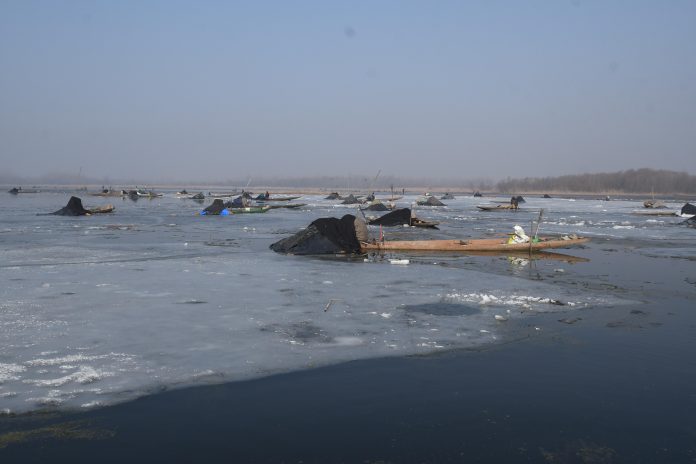India is facing a “serious challenge” of cross-border force of lawless munitions using drones, which cannot be possible without active support from State authorities, New Delhi’s envoy then said in an apparent reference to Pakistan.
Speaking at the UN Security Council’s open debate on ‘ pitfalls to International Peace and Security Risks Stemming from Violations of Agreements Regulating the Exports of Munitions and Military Accoutrements ’ held on Monday under Russia’s Presidency of the Council for the month of April.
India’s Permanent Representative to the UN Ambassador Ruchira Kamboj also asserted that “ certain countries with dubious proliferation credentials ” that machinate with terrorists should be held responsible for their errors ”.
“The import of munitions and military outfit in violation of transnational law, aggravating geo- political pressures, cannot be ignored, ” she said.
She said that the amount of these pitfalls multiplies when “certain countries with dubious proliferation credentials. In view of their masked proliferation networks and deceptive procurement practices of sensitive goods and technologies, machinate with terrorists and other non-state actors.
“For illustration, the rise in volume and the quality of the small arms acquired by terrorist organizations remind us time and again that they cannot live without the backing or support of States,” Kamboj said.
Speaking further, she said that in India’s environment, we are facing a serious challenge of cross-border force of lawless munitions using drones, which cannot be possible without active support from the authorities in control of those homes, an apparent reference to Pakistan.
Pakistani drones carrying arms and medicines have been shot down veritably frequently by India’s Border Security Force (BSF).
The most recent incident was reported on April 1 when the BSF said its colors opened fire at a suspected Pakistani drone along the International Border in Jammu. It was the alternate similar incident since medial March.
Kamboj called on the international community to “condemn such behaviour and hold such states accountable for their misdeeds.” Russian Permanent Representative Vassily Nebenzia told the Council that Moscow repeatedly called meetings of the Security Council to address the dangerous consequences of “pumping up” the Kiev regime with weapons, which clearly illustrate the risks of violating the obligations in the area of WME control.
“Anyhow of the approaches of certain countries to the developments in Ukraine, these pitfalls are relatively real and can apply to any other region. It’s the duty of the Security Council to respond to them and bandy, including concertedly with other member countries, possible measures to stop similar pitfalls,” he said.
He added that the “West is not interested in putting an end to the extremity in Ukraine
They would rather want that the extremity continues, which they don’t vacillate to say out loud, he said.
Ambassador Robert Wood of the US, Alternate Representative for Special Political Affairs, said at the open debate that the topmost threat of lawless trafficking comes from battleground prisoner of munitions by Russia and pro-Russia forces.
“Russia has proposed that it would supply captured munitions to secessionists in eastern Ukraine. These statements and conduct are dangerous and reckless,” Wood said.
Wood added that Russia has also turned to guileful administrations to try to unlawfully gain munitions and outfit to support its military operations.
He said in November 2022, North Korea delivered infantry rockets and missiles to Russia for use by the Kremlin-backed Wagner Group, and “we know Russia is actively seeking to acquire additional munitions” from North Korea.
Similar arms transfer from the DPRK to Russia directly violate Security Council judgments. These conduct particularly by an endless member of the Security Council, are deeply disturbing and only energy Moscow’s brutal war of aggression against Ukraine,” he said.
Wood noted that Iran has also transferred UAVs to Russia, a fact Iran’s foreign minister conceded in public statements on November 5.
Kamboj said the lawless transfer and illegal diversion of arms, including conventional arms and protections, Small Arms and Light Munitions (SALW), as well as Munitions of Mass Destruction (WMD), their delivery systems and affiliated accoutrements, equipment and technology to non-state actors, including fortified and terrorist groups, pose serious pitfalls to transnational peace and security.
“The unravelling of the global demilitarization armature and corner arms control agreements raise deep enterprises about the edifice erected over several decades, and the misgivings that lie on the road ahead,” she added.
Kamboj stressed that the pursuit of the forestallment of limited trade in conventional munitions and related binary use goods and technologies cannot circumscribe and shouldn’t prejudice the licit right of countries to engage in arms trade for tone- defence and in pursuit of their foreign policy and public security interests.” It’s important to strike a balance between the scores of exporters and importers, without overly hampering licit trade in conventional arms, she said.
Kamboj asserted that India has been harmonious in stressing the significance of addressing the rapid-fire elaboration of proliferation pitfalls due to new and arising technologies, particularly access to WMDs, their means of delivery and affiliated accoutrements, outfit and technology by terrorist groups and other non-state actors.(Agencies)









